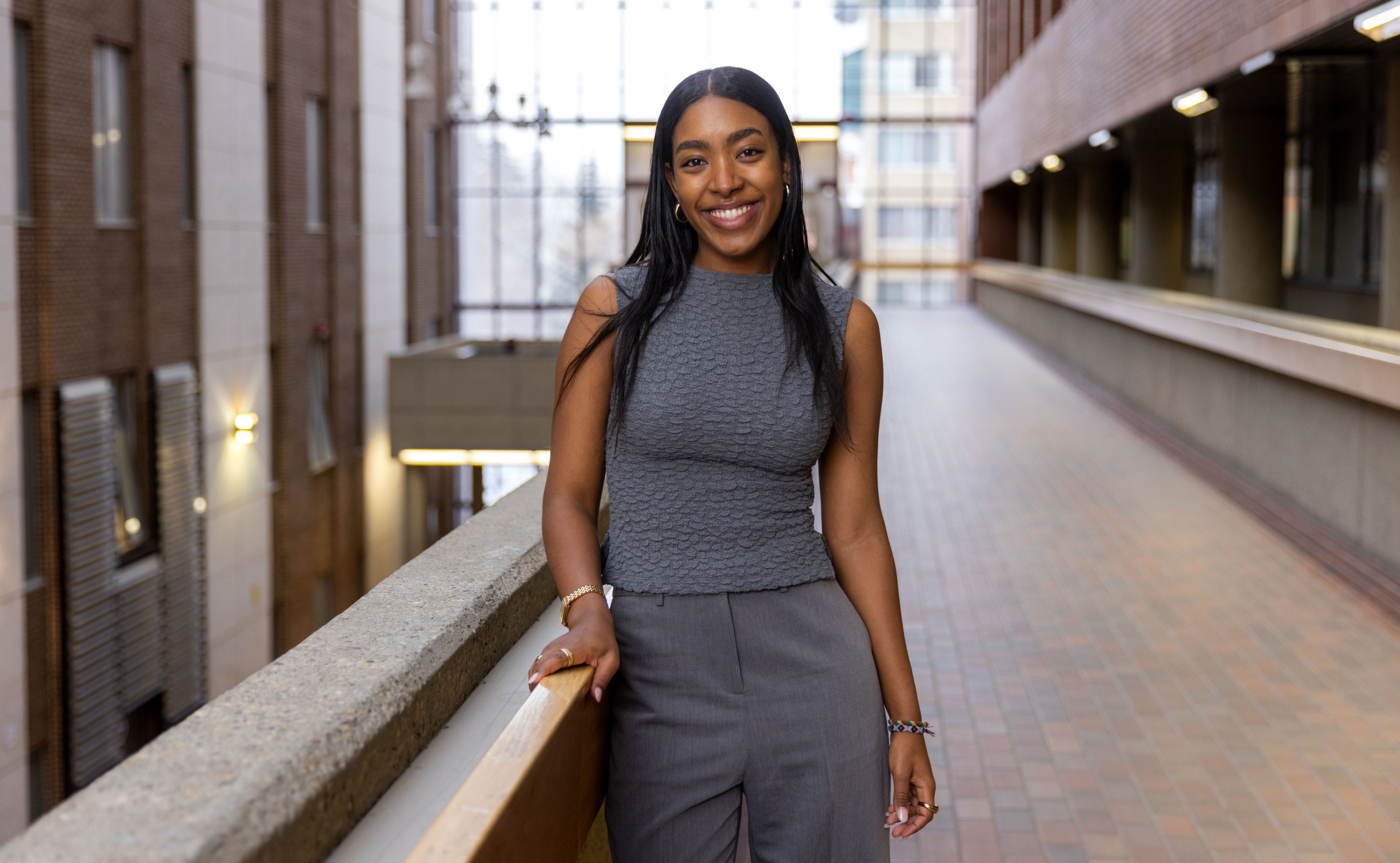With a fervent desire to improve the lives of refugee populations, political science graduate Abigail Isaac has become the University of Alberta’s 77th Rhodes Scholar.
Widely considered the world's most prestigious graduate scholarships, 11 Rhodes Scholarships are awarded annually across Canada, three in Western Canada and 100 globally by the Rhodes Trust. Worth more than $100,000, they cover tuition and application fees at Oxford University, a personal stipend and economy-class return airfare to the U.K.
In her honours thesis, Isaac explored climate-induced displacement from Central America to the U.S./Mexico border, and how framing climate change as a security threat is disproportionately harming gender minorities at the border.
“Abby’s brilliant analysis reveals the gendered and racialized harms of the punishing U.S. border policies under the Biden-Harris administration in response to the climate crisis,” says Siobhan Byrne, Isaac’s thesis supervisor.
“Her work is cutting-edge, deeply ethical, and contributes a new feminist analysis to emerging debates around racism and securitization in the international relations field.”
Isaac hopes to pursue two master’s degrees in gender and migration studies at Oxford next fall, with a focus on justice for forcibly displaced populations.
In her personal statement for the Rhodes application, Isaac compared disruptions in her personal memory caused by attention deficit/hyperactivity disorder to gaps in cultural memory for populations who have been displaced.
As a first-generation Canadian citizen of Eritrean-Ethiopian descent, Isaac is acutely aware of how her cultural identity, and that of many others, is shaped by cultural memory loss.
“To understand this is to take seriously the violence of erasure,” she writes. “If you do not know your story, someone will tell it for you.”
For most of her life, Isaac struggled with ADHD without realizing she had it. What she did know was that her approach to learning seemed different from those around her.
But since she performed well in school, her parents and teachers had no idea there was anything to worry about.
“I found ways to troubleshoot my brain early,” she says. “On what is now a 323-page Google document of 134,173 words, I began recording information that I would use to situate and trace myself when I forgot things.”
As a first-year student, Isaac initially wanted to study neuroscience, then shifted to philosophy and economics before finally seeing her own life reflected in two political science courses she randomly selected to flesh out her degree.
“I became deeply invested, and decided to apply to the honors program, because I like the idea of shaping my degree to my own interests.”
In addition to her academic accomplishments, Isaac is a founding member of the National Collective of Women in Business and founding editor of The Counternarrative Arts Magazine, and helped launch a national conference for young people of colour in partnership with YWCA Canada.
She was also recently sponsored by the Women, Peace, and Security Network of Canada to attend a UN-run program in Geneva to develop skills relevant to leading in the international peace ecosystem.
In her spare time, Isaac has earned a black belt in taekwondo and is proficient on both violin and piano.
Her passion for helping refugees was further reinforced this September after a brief stint working for Care4Calais in France, a volunteer-run charity delivering essential aid and support to refugees living in the U.K., Northern France and Belgium.
“For me, displaced communities are at the core of what I’ll be focusing on in my career,” she says.
This December, Isaac will finally get the chance to visit her parents’ country of origin.
Working with the Network of Ethiopian Women’s Associations — a cluster of 13 grassroots collectives addressing national barriers to gender equity — she will lead a research initiative examining barriers to economic inclusion for Ethiopian women.
“Abby is quite simply among the most outstanding undergraduate students I have had the pleasure to work with in my career,” says Byrne. “I can’t wait to see what she does next — I just know it will be world-changing.”
